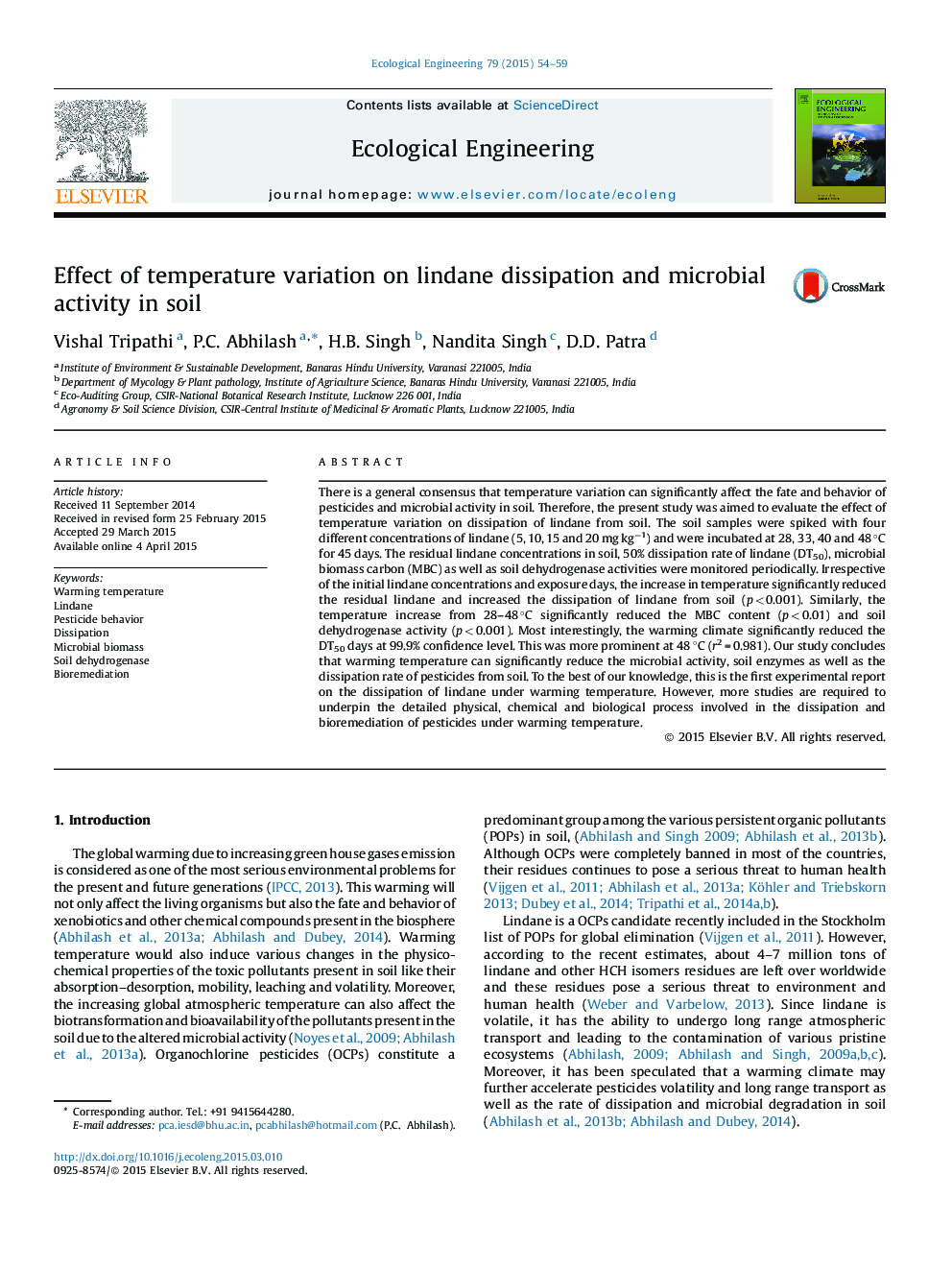| کد مقاله | کد نشریه | سال انتشار | مقاله انگلیسی | نسخه تمام متن |
|---|---|---|---|---|
| 4389118 | 1618020 | 2015 | 6 صفحه PDF | دانلود رایگان |
• The effect of warming temperature on dissipation of lindane from soil was studied.
• An increase in temperature (28–48 °C) significantly enhanced the dissipation of lindane.
• Warming temperature also reduced microbial biomass carbon and soil dehydrogenase activity.
• The study reveals that temperature variation significantly affect the behavior of pesticides in soil.
There is a general consensus that temperature variation can significantly affect the fate and behavior of pesticides and microbial activity in soil. Therefore, the present study was aimed to evaluate the effect of temperature variation on dissipation of lindane from soil. The soil samples were spiked with four different concentrations of lindane (5, 10, 15 and 20 mg kg−1) and were incubated at 28, 33, 40 and 48 °C for 45 days. The residual lindane concentrations in soil, 50% dissipation rate of lindane (DT50), microbial biomass carbon (MBC) as well as soil dehydrogenase activities were monitored periodically. Irrespective of the initial lindane concentrations and exposure days, the increase in temperature significantly reduced the residual lindane and increased the dissipation of lindane from soil (p < 0.001). Similarly, the temperature increase from 28–48 °C significantly reduced the MBC content (p < 0.01) and soil dehydrogenase activity (p < 0.001). Most interestingly, the warming climate significantly reduced the DT50 days at 99.9% confidence level. This was more prominent at 48 °C (r2 = 0.981). Our study concludes that warming temperature can significantly reduce the microbial activity, soil enzymes as well as the dissipation rate of pesticides from soil. To the best of our knowledge, this is the first experimental report on the dissipation of lindane under warming temperature. However, more studies are required to underpin the detailed physical, chemical and biological process involved in the dissipation and bioremediation of pesticides under warming temperature.
Journal: Ecological Engineering - Volume 79, June 2015, Pages 54–59
